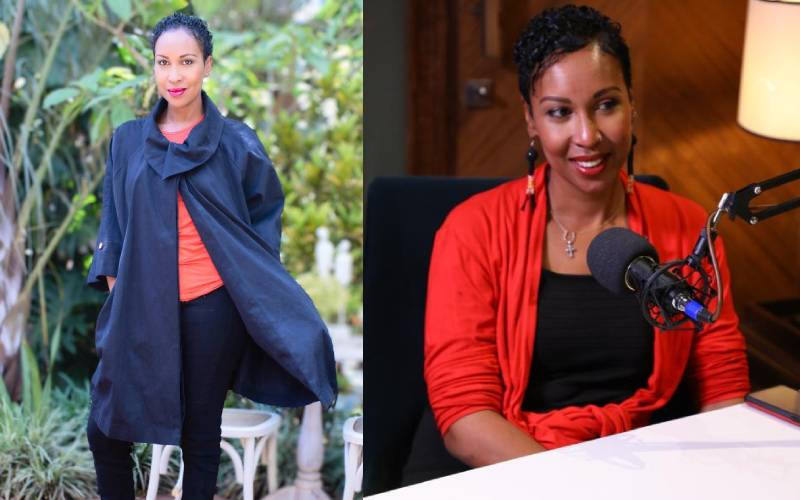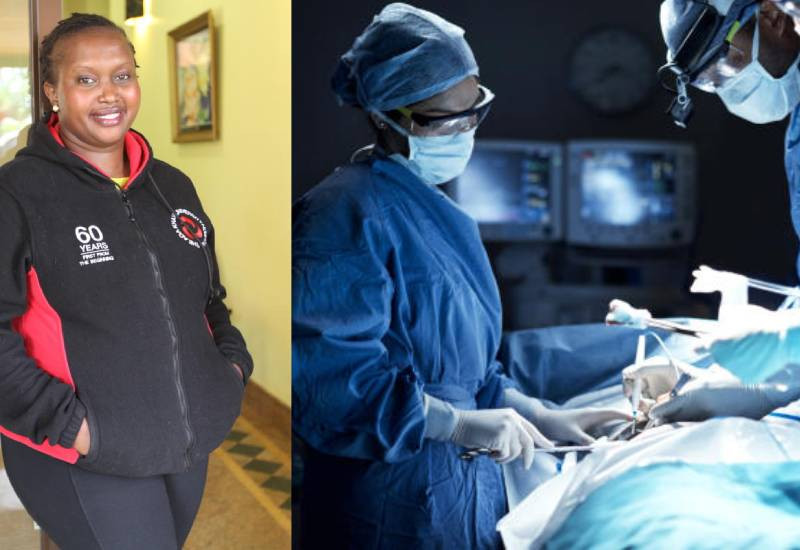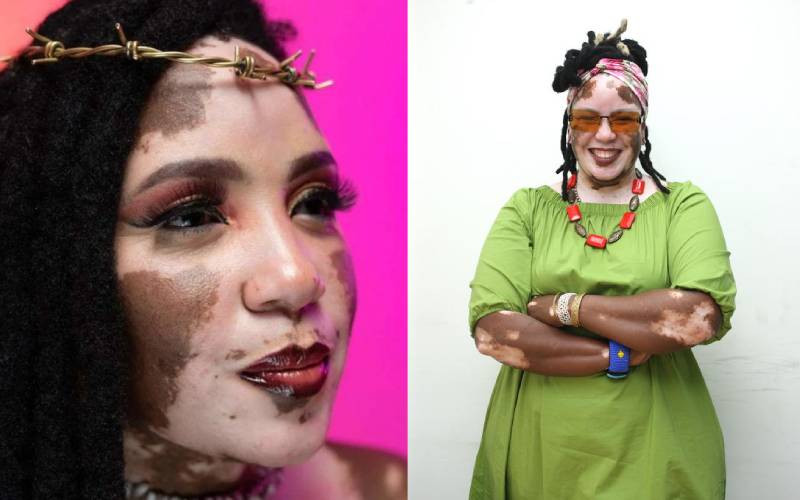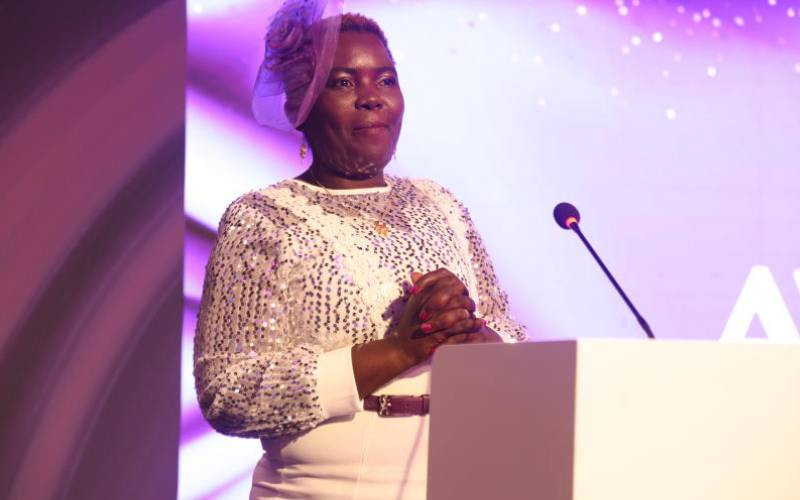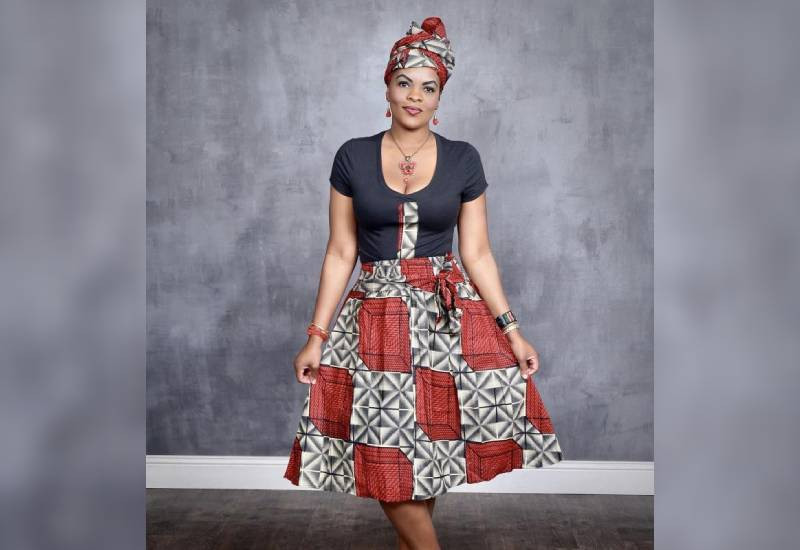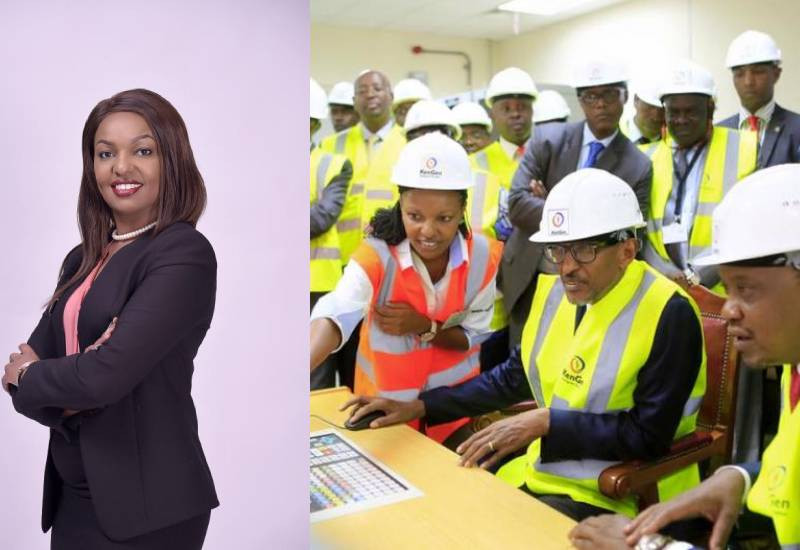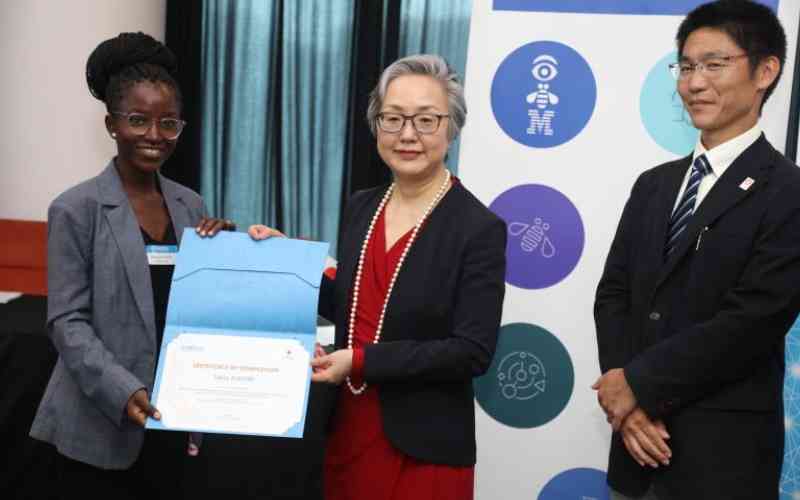
When my day begins or ends is generally ruled by the different stages of production of the TV series we are creating at the moment.
Pre-production starts months before we start filming. We normally do our shows in four-season cycles. Our storylining and workshop period, which is when we are coming up with stories, sharing ideas, sitting in the writers’ room takes about a week in a month.
Two weeks of the rest of that month is for the writers working on the scripts and then we have a week of readthroughs and editing of the scripts.
So, for four seasons, we would spend four months working on just the story. About a month to the production, we get into the process of designing and building sets; casting, scouting for locations, applying for licenses and getting the team together.
When we finally start production, we film six days a week. Our days start at 6.30 am. We have breakfast on set at 7am as we brief the team on the day’s expectations and address any issues that may arise. The cast gets into the wardrobe and makeup and we get into the real grind. We wrap up the day around 7:30pm.
This business requires a lot of passion and commitment. The hours are long and arduous for everyone on the set, and as the producers, we try as much as possible to lead from the front, and thus you will find that we are on set same time as the rest of the crew and we wrap the same time as they do.
I run Moonbeam Production together with my partner Eve D’Souza. The idea behind the business is to produce content that is relatable to not only Kenyans but people across Africa.
It was important for us to tell “our stories” affecting people of all backgrounds, ethnicities and races. For example, the choice of characters in our TV series is very deliberate.
For example, Shiro from the Auntie Boss television series was the typical girl from the village who moved to the big city of Nairobi in the hope of getting a job as a house help.
Also, in the show, Varshita and Don were developed to highlight the serious challenges still involved in interracial relationships.
The Njoro in Njoro wa Uba is the taxi driver who goes through many challenges that come with the job. Every character is carefully thought out and acted with humour to highlight issues across Africa that need to be taken seriously.
I was so passionate about telling Kenyan stories that I quit my job. My business partner Eve D’Souza and I while employed had discussed our frustration over the kind of content we were watching on television and that was when the idea to start the business was bone.
It was scary to leave employment and to go at it alone, and so it took us both two years to build up the courage to take that first step and quit our jobs.
Eve quit in late 2010, and I in January 2011, and Moonbeam Productions officially kicked off in January 2011.
So far, we have worked on a variety of shows: three seasons of Travel Diaries Kenya, four seasons of the male talk show, Mentality, over 20 seasons of Auntie Boss, 21 seasons of Varshita and eight seasons of Njoro wa Uba.
Like any other business we have gone through tough seasons. The hardest was when we filmed the first 17 seasons of the TV series Varshita back-to-back without a break.
That really took a toll on us, by the time we were winding up everyone involved was burnt out, grumpy and quite frankly over it. It made us hate the show and coming to work.
Months after we wrapped, we felt re-energised, more creative and enthusiastic about the storylines. We went back into production for four more seasons after swearing we were done. We learned that like every job in the world, you need to take breaks - it is so important for your overall wellbeing and improves your output.
Most business partnerships do not work out, however, mine and Eve’s works because we play off each other’s strengths, complement the other strong points and strengthen each other’s weaknesses.
Also, it is important to go into business with someone who shares the same passion and excitement about want you want to achieve.
Production requires the hiring and management of a large number of people on set, and we have come up with things we look at before hiring, which may be different from what others may look for.

We usually have a team of about 40-50 people per production. Although most employers pick the most educated or well-spoken, we look at the passion, discipline and willingness a person displays to learn and commit to the grueling process of producing a TV show.
I think I am a good producer, but I suck at people skills; I am nervous when I meet people for the first time. I hate that people are hired largely based on how well they spoke at an interview or how confident they appeared.
I do not think there is any business out there that was not affected by Covid-19. One of our comedy series was cancelled due to the financial strain the pandemic had on businesses.
We were fortunate to have contracts in place for two other TV shows and managed to continue production for them.
However, production is more costly in a pandemic so we have had to mitigate those challenges. When the first case of Covid-19 was reported in Kenya in March 2020 and restrictions were put in place, we were meant to start production on new seasons of Njoro wa Uba in April. We were also supposed to start production of Varshita in June.
Unfortunately, we had to push forward our start dates and still meet the on-air timeline that had been put in place when we initially signed the contracts. In summary, we had a lot less time to produce the shows and get them on air.
It was very stressful but everyone gave it their all to get the episodes out. It cost us more as we were filming under restrictions, which raised expenses, we had not factored in.
Risk is a huge part of business and if you want to be a successful entrepreneur you must be ready to take risks head-on. For example, we filmed 26 episodes of Auntie Boss using our own funds, before we even secured a broadcaster.
We believed in the show that much. Entrepreneurs need to learn to take calculated risks, not stupid risks, to help grow their business. If you keep waiting and playing it safe, you are not going to achieve much success.
The creation of content requires constantly pitching TV show ideas to various broadcasters, and there are tips you learn along the way on how to make a successful pitch.
We learned fast how sales are an essential skill because it allows you to convey your ideas in a way that makes your clients enthusiastic too. It is not as simple as just showing up and selling the concept.
You must also make a connection with your prospective client and present yourself as someone worth investing in. Most importantly, you must find a way to convince your client you have a winning idea.
Sometimes the client will like only part of the concept and want to change or modify other parts - be prepared and adaptable.
Anyone who wants to start this type of business must be prepared to go without extra money, holidays or free time, especially in the first year.
If you are thinking of being a producer, the most important things are Story, Managing your Budget and Passion.
Get the story right, have the passion to stick it out through the tough times and find ways to stay within your budget.
 The Standard Group Plc is a multi-media organization with investments in media platforms spanning newspaper print
operations, television, radio broadcasting, digital and online services. The Standard Group is recognized as a
leading multi-media house in Kenya with a key influence in matters of national and international interest.
The Standard Group Plc is a multi-media organization with investments in media platforms spanning newspaper print
operations, television, radio broadcasting, digital and online services. The Standard Group is recognized as a
leading multi-media house in Kenya with a key influence in matters of national and international interest.

